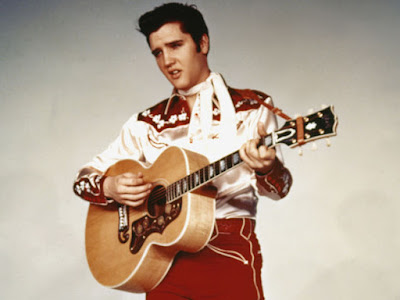 |
| Soul Express: Tom Beyerlein, Ken McCall, Chris Demmons, LaVon Ferguson and Phil Fleming. |
This New Year's Eve 2018 at the Irish Club in Dayton will mark the twentieth anniversary of the Soul Express. This band specializes in the music of the Soul Era, naturally enough, covering songs from groups such as the Temptations, Contours, Four Tops, James Brown, Otis Redding and Marvin Gaye among others.
Tom Beyerlein is one of the co-founders and the band's bass player, along with Ken McCall (sax, flute and vocals), Chris Demmons (keyboards, vocals), LaVon Ferguson (Guitar, vocals), and Phil Fleming (drums).
So how did all this happen?
Beyerlein grew up in the 1960s, and really did not have much affinity for the bass as a kid. His musical tastes in childhood were formed from AM radio. At that time, portable transistor radios were becoming commonplace, but FM radios were more expensive than AM radios. Consequently, AM tended to reach more listeners, with low quality sound on lower quality radios than today's versions. "You couldn't really hear the bass on an AM transistor radios in those days," he laughs. "I scarcely was aware that there was such a thing."
AM radio in those days was less specialized. That is, the stations tended to play music that was popular, regardless of whether it was pop, rhythm and blues, or soul. Later, music stations become more specialized, but in the 1960s, Motown and Memphis Soul were played alongside the Beatles, Rolling Stones and Elvis.
Tom's first instrument was not the bass, but another four-stringed instrument, the baritone ukulele. Tom's Dad made the unilateral decision that the family would learn music, and Dad would play guitar, Tom would play baritone ukulele and Mom would play tenor ukulele. "Ukulele at that time was the most uncool instrument there is," he laments.
Eventually, Tom's parents became less interested in instruments and limited themselves to singing, while Tom, in addition to being a very good singer, became the sole accompanist. Tom tried to play his Dad's nameless cheapie guitar for while, and eventually moved up to an Epiphone copy of the Gibson ES-335. That instrument was at least playable, but in the early days of mass production, the Epiphones were notoriously shoddy. Perhaps Tom's Dad was actually not the best source of musical instruments, but love seemed to overcome the lack of instrumental expertise. Perhaps because of that experience, Tom has come to really appreciate quality instruments such as his Fender Precision bass which come from the mid 1960s or earlier.
Making a long story short, there really was a historical industry-wide decline in quality for about a decade as instrument makers incorporated more mass production technology, with varying degrees of success. Some of the lousiest instruments in history were made in the late 1960s and early 1970s. Those of us who learned from instruments of that era really did have deprived childhoods!
At any rate, Tom survived childhood trauma to become a good enough vocalist and guitarist to play with others in a band as a teen. Much later, circa 1999, Soul Express came about when Tom and a few musician friends decided that they wanted to play together professionally, even though they weren't exactly sure what kind of music they would focus on. Later they decided to focus on Soul. That idea was partly inspired by a unique film, The Commitments, which you may have never heard of. Although not a box office smash, The Commitments is a story about working class kids in Ireland who are fanatically devoted to Soul Music, and achieved a sort of cult following world wide. Et voila! The Soul Express was born.
Soul presents special challenges to the bass player because of its intricate rhythms and complex scales and harmonies. Although not fundamentally a different animal than jazz or rock n' roll, soul makes great use of the minor pentatonic and blues scales, and moreover it tends to be improvisational, especially during the instrumental breaks. That is, the musicians often go "off script" and make new sounds during the break. The bass player's job is to try to bring together the wilder impulses of the other band members, and lead them through the song. Kind of like herding cats. Cool cats, perhaps.
Soul presents special challenges to the bass player because of its intricate rhythms and complex scales and harmonies. Although not fundamentally a different animal than jazz or rock n' roll, soul makes great use of the minor pentatonic and blues scales, and moreover it tends to be improvisational, especially during the instrumental breaks. That is, the musicians often go "off script" and make new sounds during the break. The bass player's job is to try to bring together the wilder impulses of the other band members, and lead them through the song. Kind of like herding cats. Cool cats, perhaps.
So what happens at a Soul Express performance? One thing is that if you go to a few you will start to see some familiar faces in the audience.. Mostly it is an older crowd, but you will also see young people as well. You will also notice that most of the audience is really into the music, actively listening rather than engaging passively. And if there is not a dance floor available, they audience will make one. That's the fantastic part of a live performance.
Soul Express is celebrating its twentieth anniversary on New Year's Eve. Here's hoping that they have at least another twenty in their musical journey.
Soul Express is celebrating its twentieth anniversary on New Year's Eve. Here's hoping that they have at least another twenty in their musical journey.





